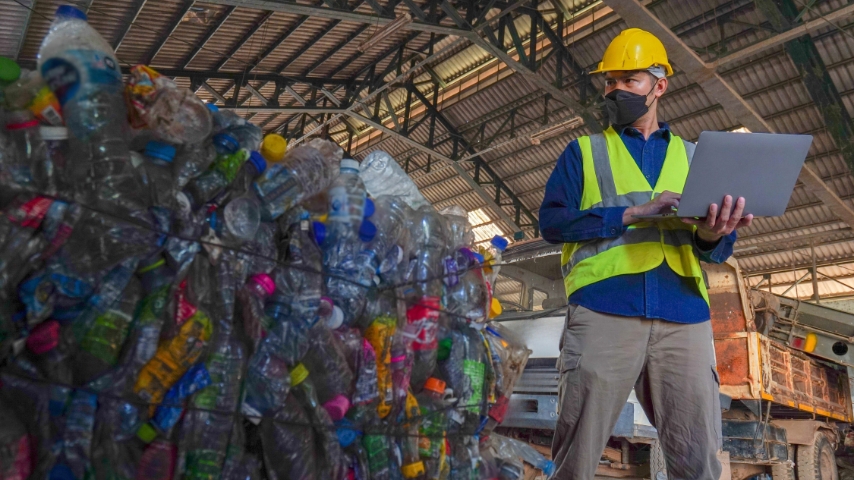Blog: Engineers Integral to a Successful Circular Economy
Blog: Engineers Integral to a Successful Circular Economy


Mechanical engineers are on the frontlines of sustainability—from reduce, reuse, and recycle, to the importance of delivering success in the circular economy.
It is no wonder that mechanical engineers are leading the way in sustainability as recycling focuses on waste and changing it into a use that meets a specific need. This is especially true since the circular economy demands manufacturers welcome green systems, use only environmentally-friendly materials, and consider eventual eco-friendly disposal at their products’ end-of-life.
The recycling movement began during World War II when Americans were asked to collect items made of metal to help the war effort. The Allies needed pots and pans, old machines, and rusted tractors to build ships and airplanes. Americans celebrated the first Earth Day in 1970 and began the modern idea of recycling and better waste management.
The United States Environmental Protection Agency has a section on its website dedicated to recycling. But in 2025 the general plea to reuse, repurpose, and repair now includes the idea that we must refuse and reduce. Minimalists on TikTok and elsewhere put engineers in a unique position in the greening economy as they are called upon to design products and address the larger challenges of sustainability.
MEs work on the big tasks. They address electrification, energy storage, and carbon capture, for example. And while these difficult endeavors steal much of the headlines, there are many MEs plying ahead in scores of different sectors from reuse technologies in agriculture to the niche industry of apparel accessories.
ASME is working hard to build a sustainable future. Through an alignment with the UN Sustainable Development Goals it is working with its members and volunteers to address global challenges in climate action, social equity, and economic prosperity.
Just in the past year, for example, ASME has covered many stories that examined solutions such as talking to a professor of mechanical engineering at Villanova University, who examines waste heat generated by data centers; a team at the University of Missouri studying the performance of asphalt enhanced with polyethylene; or researchers having developed a new filter that can capture and recycle aluminum from manufacturing waste.
But there are plenty of challenges that continue to hamper progress toward cultural sustainability. And researchers have identified ways to help the successful implementation of solutions, among them engineering and technological answers such as product design that encourages easy repair, operational processes that offer greater productivity using fewer resources, and consumer acceptance of solutions that include paying more for efficient and sustainable options.
Added to the mix is the ability of advanced technologies such as blockchain, artificial intelligence, and IoT-enabled systems to help enhance solutions that include predictive maintenance, efficient logistics, and more. Moreover, MEs will enlist robots in the fight as these smart machines locate and then sort recyclable plastics or consume other robots for necessary parts.
Cathy Cecere is membership content program manager.
The recycling movement began during World War II when Americans were asked to collect items made of metal to help the war effort. The Allies needed pots and pans, old machines, and rusted tractors to build ships and airplanes. Americans celebrated the first Earth Day in 1970 and began the modern idea of recycling and better waste management.
The United States Environmental Protection Agency has a section on its website dedicated to recycling. But in 2025 the general plea to reuse, repurpose, and repair now includes the idea that we must refuse and reduce. Minimalists on TikTok and elsewhere put engineers in a unique position in the greening economy as they are called upon to design products and address the larger challenges of sustainability.
MEs work on the big tasks. They address electrification, energy storage, and carbon capture, for example. And while these difficult endeavors steal much of the headlines, there are many MEs plying ahead in scores of different sectors from reuse technologies in agriculture to the niche industry of apparel accessories.
ASME is working hard to build a sustainable future. Through an alignment with the UN Sustainable Development Goals it is working with its members and volunteers to address global challenges in climate action, social equity, and economic prosperity.
Just in the past year, for example, ASME has covered many stories that examined solutions such as talking to a professor of mechanical engineering at Villanova University, who examines waste heat generated by data centers; a team at the University of Missouri studying the performance of asphalt enhanced with polyethylene; or researchers having developed a new filter that can capture and recycle aluminum from manufacturing waste.
But there are plenty of challenges that continue to hamper progress toward cultural sustainability. And researchers have identified ways to help the successful implementation of solutions, among them engineering and technological answers such as product design that encourages easy repair, operational processes that offer greater productivity using fewer resources, and consumer acceptance of solutions that include paying more for efficient and sustainable options.
Added to the mix is the ability of advanced technologies such as blockchain, artificial intelligence, and IoT-enabled systems to help enhance solutions that include predictive maintenance, efficient logistics, and more. Moreover, MEs will enlist robots in the fight as these smart machines locate and then sort recyclable plastics or consume other robots for necessary parts.
Cathy Cecere is membership content program manager.


